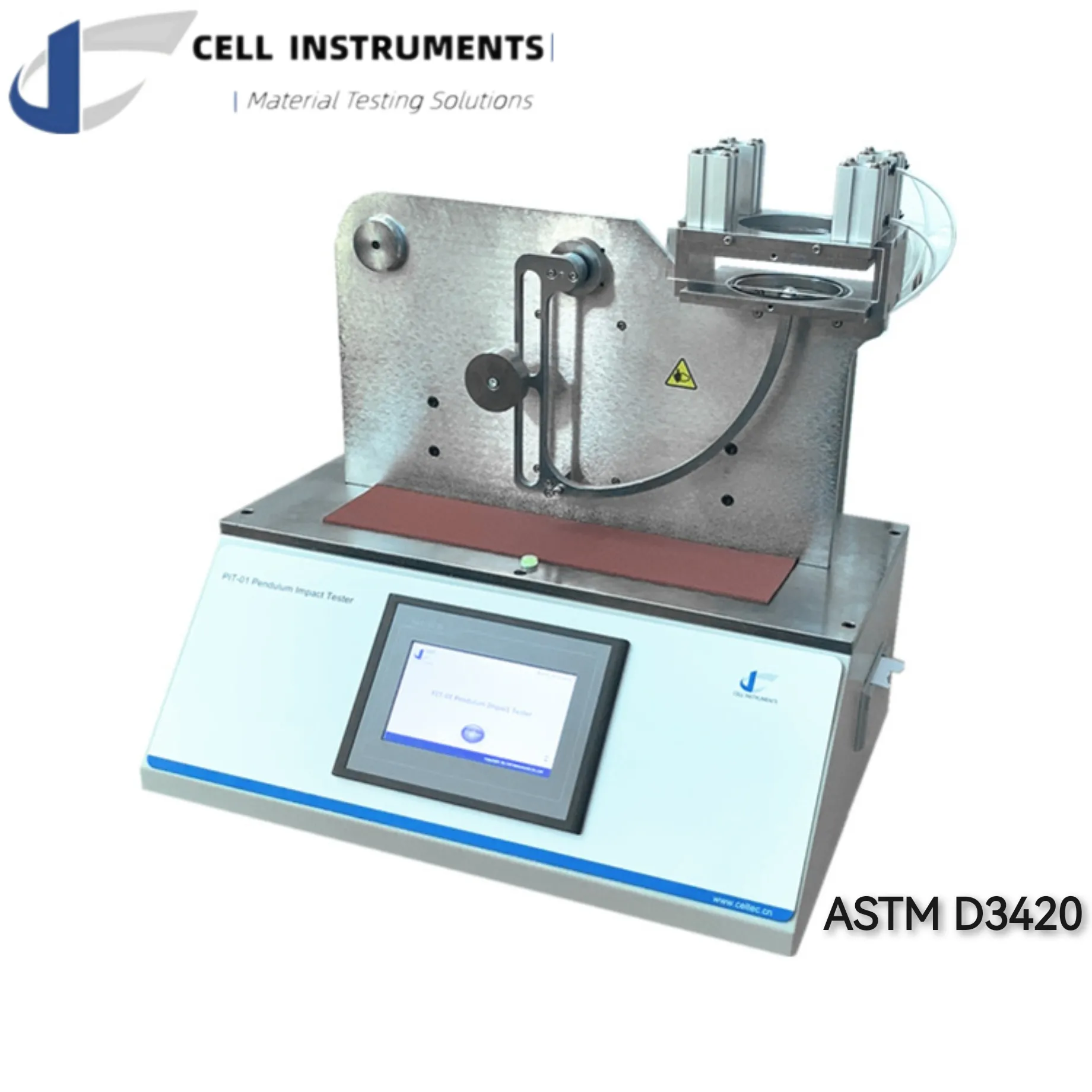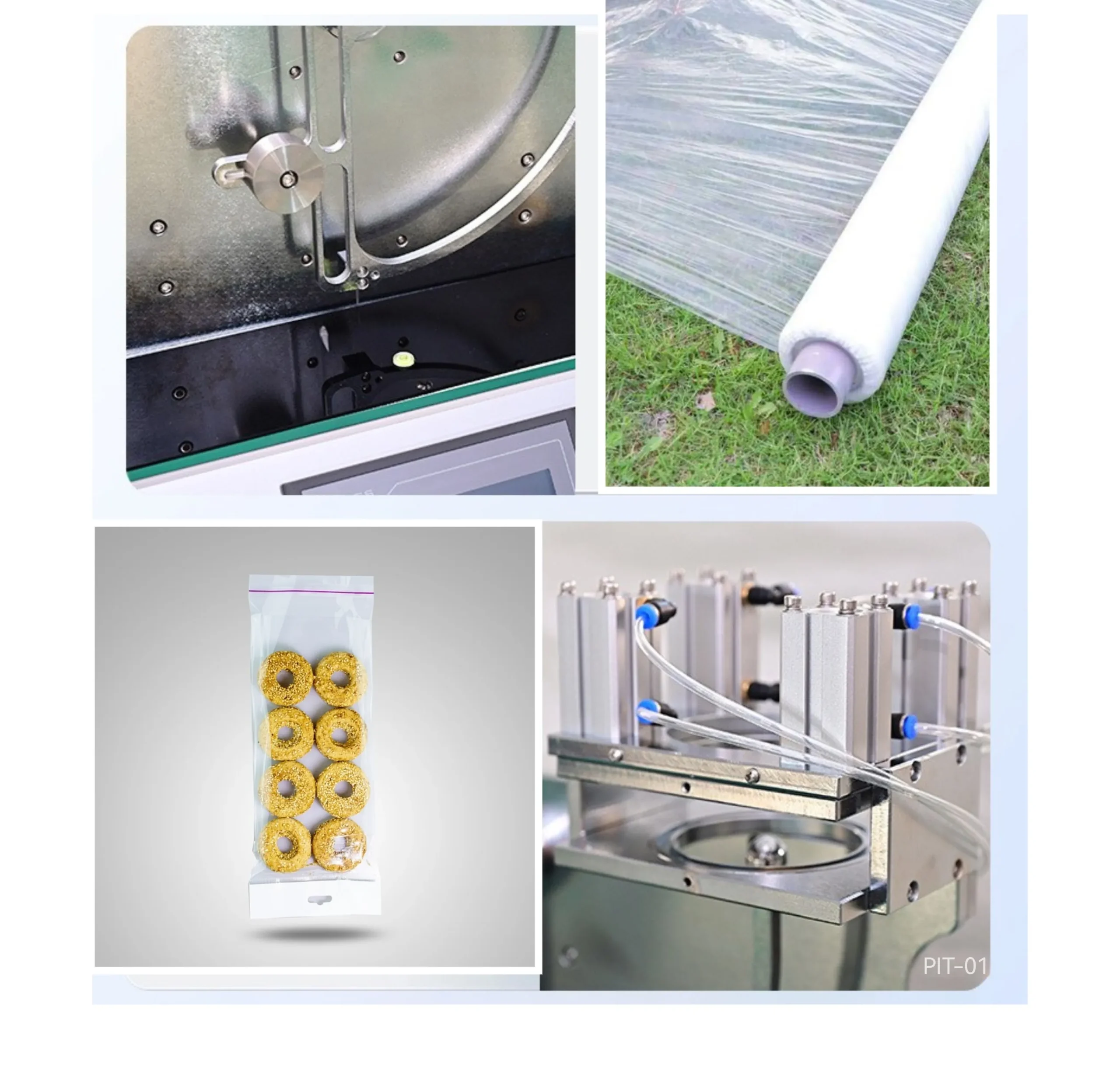FILM PENDULUM IMPACT TESTER: ESSENTIAL TOOL FOR ASSESSING PLASTIC FILM IMPACT RESISTANCE
Film Pendulum Impact Tester
About Us
What Is a Film Pendulum Impact Tester?
A film pendulum impact tester is a specialized instrument used to evaluate the impact resistance of plastic films and flexible packaging materials. It simulates real-world mechanical shock and puncture forces that materials experience during handling, transportation, and use. This test method helps manufacturers understand a material’s ability to withstand dynamic stresses without tearing or perforating. The tester plays a crucial role in ensuring product safety and packaging integrity.

THE FUNCTION OF FILM PENDULUM IMPACT TESTING
Main Functions and Advantages
- Accurate measurement of energy absorption during rupture
- Simulates dynamic impact and puncture conditions
- Ensures compliance with international testing standards (ASTM D3420, NF T54-116)
- Improves quality control and product development
- Suitable for films, laminates, foils, and coated paper
THE FILM PENDULUM IMPACT TESTING PROCESS
Brief Description of the Test Method
WE WILL WRITE A PREFIX DESCRIBING WHAT MAKES PEOPLE CHOOSE YOUR BUSINESS HERE
Brief Description of the Test Method
The film pendulum impact testing process involves clamping a film specimen between two plates and striking it with a hemispherical pendulum head. As the pendulum swings and penetrates the specimen, the tester measures the energy lost during impact—this value reflects the material’s toughness and resistance to rupture.
The test conforms to ASTM D3420, which includes:
Procedure A: Ø60 mm clamp, 25.4 mm head.
Procedure B (Spencer Impact Test): Ø89 mm clamp, 19 mm head.
テストプロセス
- Cut 5+ specimens (100 x 100 mm or Ø100 mm).
- Clamp each sample using a pneumatic or manual fixture.
- Raise and release the pendulum from a fixed angle.
- Measure the absorbed energy via digital or dial readout.
- Repeat and calculate the average.
Applicable Fields and Typical Applications
Flexible Packaging
Assess puncture resistance of food and pharmaceutical films.
Medical Devices
Ensure safe packaging of sterile equipment
Construction
Test insulation films, membranes, and laminates.
Printing & Paper
Validate the tear resistance of coated and specialty papers
CELL INSTRUMENTS-PENDULUM IMPACT TESTER
Technical Specifications
| Impact Energy | 1 J, 2 J, 3 J |
| Resolution | 0.001 J |
| Impact Head Size | Ф25.4, Ф19, Ф12.7 mm |
| Specimen Clamp | Pneumatic Clamp |
| Clamp Diameter | Ф89 mm, Ф60 mm |
| Gas Supply | 0.6 MPa Φ6 mm PU Tubing |
| Specimen Size | 100*100 mm or Ф100 mm |
| Power Supply | AC 110~220V 50/60Hz |
THE FILM IMPACT RESISTANCE TEST
Why Is the Test Important & Why Choose Cell Instruments
01
Why Is the Test Important?
Without proper impact resistance, flexible packaging materials may fail during transportation, leading to leakage, contamination, or product waste. The film impact resistance test ensures that materials meet strength and safety requirements before mass production. This protects both product integrity and brand reputation.

02
Why Choose Cell Instruments?
Cell Instruments is a professional manufacturer of material testing instruments with extensive expertise in packaging and plastic testing. We offer:
- High-precision, standards-compliant equipment
- Customization for unique test needs
- Strong after-sales support and remote training
- Technical support from R&D to QC integration

Questions and Answers
FAQ – Frequently Asked Questions
We sincerely hope that our instruments can provide you with quality services.
Q1: What materials can be tested with a film pendulum impact tester?
A: Plastic films, foils, paper laminates, flexible composites, and coated materials.
Q2: What’s the difference between Procedure A and Procedure B in ASTM D3420?
A: Procedure A uses a 25.4 mm impact head with a 60 mm clamp; Procedure B (Spencer impact test) uses a 19 mm head with an 89 mm clamp.
Q3: Can the tester be used for very thin or multilayer films?
A: Yes. The PIT-01 supports both thin monolayer and complex multilayer films.
Q4: How do I know which energy level to select?
A: It depends on your material type and packaging application. Our technical team can help configure the ideal setup.
Q5: Does Cell Instruments provide training and technical support?
A: Absolutely. We offer remote training, documentation, and ongoing support for all global clients.


Get in touch
No. 5577 Gongyebei Rd, Licheng, Jinan, 250109, Shandong, P.R.C.
marketing@celtec.cn
+86 185 6001 3985
